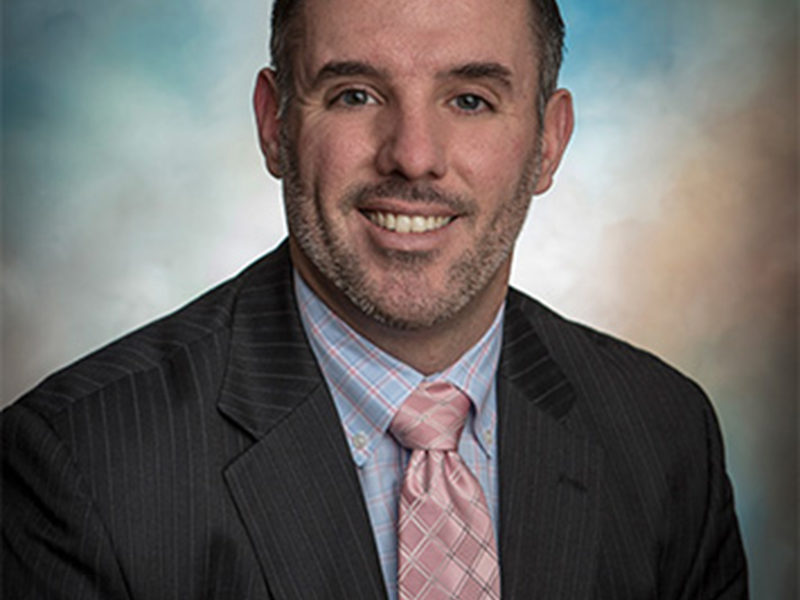
The People Who Find The Right People
When the New York Yankees need a clutch starting pitcher or a powerful corner outfielder, their course of action is pretty predictable.
If there’s nobody in the minor leagues deemed strong enough to bolster the big league team, Yankees General Manager Brian Cashman looks outside the organization. Whether he signs a big-name free agent or acquires a star player via trade, the Yankees have a reputation for bringing the best possible talent to New York to don the pinstripes. When a team like the Yankees needs a new executive for the front office, though, the process is a bit different. While the Yankees—and all sports teams, for that matter—have their pick of many “free agents” on the open job market when it’s time to fill a sales or marketing position, many of the best candidates for the job are likely already locked up elsewhere. For that reason, the Yankees are one of many top sports teams that utilize the services of executive search firms.
“We can provide something very unique,” said Mark Gress Jr., the vice president of recruiting for Prodigy Sports, one of the executive search companies the Yankees frequently work with. “Our network and our ability to help an organization decide between some very large and robust candidate pools for any given job. Who’s the best candidate, who’s the best fit?”

Mark Gress, jr.
That’s the age-old question for employers, and the sports industry is no different. While sports teams have data and statistics ad nauseum to help them decide which players to target for the field, the decisions made to fill front office roles aren’t as clear cut. Some teams simply don’t have the resources or manpower to handle an executive-level placement, while others just prefer to utilize the vast databases of prospective employees that firms like Prodigy have access to.
“A lot of HR recruiting departments in sports are stretched very thin, or, they might want to leverage the network that we have for an unbiased recruiting process,” Gress explained.
There are a number of recruiting companies like Prodigy Sports that focus on staffing needs specifically for sports organizations, but Prodigy is considered a boutique executive search firm, specializing in C-level jobs with titles like director and vice president. When a sports team like the Yankees, the Miami Heat, or the San Francisco 49ers has a high-level opening, they often reach out to Prodigy for assistance. The team typically will pay an up-front retainer fee to begin the search for their next top employee, and that’s when the recruiting firm gets to work.
“We try to really learn about the organization’s culture, the environment, and what type of person would succeed in the role long-term, before we start doing any research on candidates, before we start going through our database or any of our various recruiting tools,” Gress explained. “Once we think we have a good idea of the job description on paper, the company, and the key players in terms of the staff above and below the person that we’re recruiting, then we really do a lot of the legwork. That’s a lot of the reason we get hired and where we really earn our money. We start to do all of our research, all of our brainstorming, and we come up with a group of, for any given search, anywhere from 10-20 candidates to 70-80 candidates. These are prospects. These are people that we’re just targeting that we think they could meet all of the criteria and could be a fit, could have interest.”
The potential candidates for the job come from a variety of sources, ranging from individuals in internal databases to prospects who respond to publicly-posted job listings. Companies like Prodigy do post open positions to online job boards, but Gress said most eventual hires do not originate from public postings.
“I’d say less than 10% of the interested and qualified candidates for a given job come from our website,” he said. “Most of the candidates that we recommend for a position come through our own outreach. When we post something on our job board, we put it out there on social media as well. We want to create a buzz about the position, we certainly want to get the brand out there, we want people to know about the employer. All of that is critical and I’m not saying the job board is not important, but the reason a lot of these organizations and clients utilize us is because they know we’ll dedicate two, three, maybe four different people to be doing calls and emails and LinkedIn messages to find the passive job seeker.”
Gress said that most of the individuals who end up interviewing for the open position are already happily employed elsewhere, so it’s up to Prodigy and the sports team they’re working with to entice the prospect.
“If there’s one big component of what separates us versus posting a job on Job Board X, it’s that we’re finding the passive job seekers,” he said. “Somebody that’s not on job boards, that’s not applying every day, that might not even have an updated resume. We’re finding somebody that’s happy, content, and would probably only go after the position after we’ve kind of pitched it to them.”
Of course, the allure of a big title with a prestigious sports organization is often enticement enough, but if it’s not, companies like Prodigy don’t push too hard.
“We are selling a job or opportunity, but we don’t want to over-do it, either,” he said. “If a person’s not intrigued by a company, by an ownership group, by a title, money, location, all those factors—if they’re not intrigued by those things and we have to work too hard to recruit them—then I think there’s danger in somebody getting there and being disappointed, or maybe taking the job, but leaving after six months. We want somebody to be there long term, so we want there to be genuine interest.”
Once the initial candidates for the job are identified, Prodigy works to whittle the list down through interviews and additional outreach. What remains are a handful of qualified and eager applicants.
“We’ll make a recommendation to our client that could be five, seven, maybe not as many as 10 candidates,” Gress said. “We’ll say, ‘OK, listen. We’ve interviewed a few dozen people, we’ve spoken to 50 or 60 names in the industry, and these are our best five to seven candidates. We’ll provide to them who we think matches all the criteria and ultimately the people we view as finalists for the position, the people we think are worthy of an interview.”
From there, the final steps of the process vary depending on the client. Some teams like to take matters into their own hands when it comes to interviewing the final candidates and making a job offer, while others prefer to keep Prodigy in the loop through the final interviews and offer letters. Once an employee is hired, the sports team pays Prodigy a one-time percentage of the employee’s annual salary, in addition to the up-front retainer fee that was paid previously. From start to finish, the process typically takes 60 to 90 days, and it’s almost always successful.
“It’s very rare that we don’t complete a search,” Gress said, adding that he can count on one hand the number of times an agreement hasn’t been reached at the end of the search.
Most of the positions that companies like Prodigy help to fill are in the sales and marketing side of sports.
“Our core business is primarily in ticketing, sponsorships, marketing, digital, social, and creative,” he said. “We’ve done searches in all business functions. We’ve done some in finance, HR, operations, venues and facilities. Literally every business function you can think of.”
Most of the clients Gress works with at Prodigy are professional, college, or minor-league teams, but he also deals with sports leagues, ticket companies, and non-traditional sports organizations like the UFC and horse racing. The clients range from iconic brands like the Yankees—Prodigy recently helped the Bronx Bombers fill an opening for a senior director of digital and social strategy—to upstart teams like the Minnesota United, a new expansion franchise in Major League Soccer that tasked Prodigy with finding its senior vice president.
“They all come with their challenges, whether it be location or the type of organization,” Gress said, “but it’s fun to work with these organizations.”

